London charity investigated over alleged links to Tehran
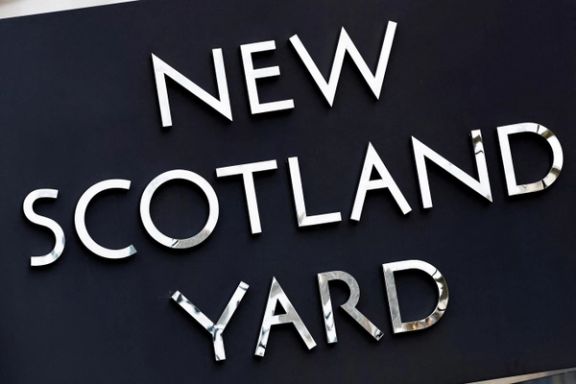
On Friday, The Times revealed that police in London and the Charity Commission are investigating Dar Alhekma Trust (DAT), a charity with alleged links to Iran.

On Friday, The Times revealed that police in London and the Charity Commission are investigating Dar Alhekma Trust (DAT), a charity with alleged links to Iran.
The investigation, led by a national unit focused on terrorist financing, follows a dossier suggesting connections to groups backed by Tehran. DAT and the associated Abrar Islamic Foundation (AIF), also based in London, deny any wrongdoing.
The Charity Commission started a regulatory compliance case into DAT and AIF but paused it while law enforcement reviewed the dossier. One DAT trustee has praised a commander of Iran’s Islamic Revolutionary Guard Corps (IRGC) and described the October 7 Hamas attacks by saying Palestinians “rose up and became the master of the situation.”
The investigation comes amid wider concerns in the UK about activities tied to Iran. Intelligence officials have accused Tehran of supporting assassination attempts, kidnappings, and efforts to silence dissidents living in Britain.
Last year, the Charity Commission began investigating other Iran-linked charities in the UK, some of which hosted hardline Islamic clerics and paramilitary figures. In addition, The Times of London revealed more than six UK-based groups connected to Tehran, including organizations active in pro-Hamas rallies. British officials have voiced fears that hostile actors are using these groups to inflame tensions over the Gaza-Israel conflict.
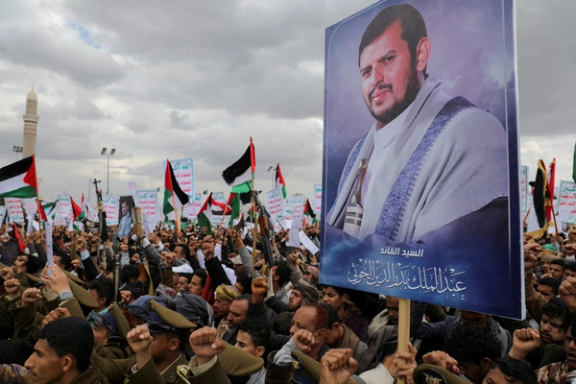
The United States imposed sanctions against entities linked to Iran and its allies the Houthis in Yemen on Thursday just weeks before the inauguration of President-elect Donald Trump is due to herald even harsher pressure on Tehran.
“Today, the United States is taking action to stem the flow of revenue that the Iranian regime uses to support terrorism abroad, as well as to oppress its own people," the Treasury Department said in a statement. "The Department of State is imposing sanctions on four entities engaged in the Iranian petroleum trade and identifying six vessels as blocked property.”
The sanctions include individuals, companies, and vessels tied to the trade of Iranian petroleum and petrochemicals, a critical source of revenue for Tehran’s leadership. According to the Treasury, these funds support Iran’s nuclear program, ballistic missile development, and the financing of proxy groups such as Hezbollah, Hamas, and the Houthis.
Also, Iran’s Ghezel Hesar Prison was designated for gross violations of human rights, the Treasury Department announced.
The designation, made under Section 106 of the Countering America's Adversaries Through Sanctions Act (CAATSA), identifies the prison as responsible for cruel, inhuman, and degrading treatment or punishment against individuals in Iran exercising their internationally recognized right to freedom of expression.
The Department of State and the Treasury's Office of Foreign Assets Control (OFAC) jointly listed the facility for its role in these abuses, reinforcing US efforts to hold accountable those involved in human rights violations.
The designation blocks all property and interests of Ghezel Hesar Prison within the United States, largely a symbolic act, and prohibits US persons from engaging in transactions with the institution.
Bradley Smith, acting undersecretary for terrorism and financial intelligence, emphasized in a statement that the United States remains committed to disrupting Iran’s revenue streams that fund destabilizing activities. He pointed to a "shadowy network" of vessels, companies, and facilitators used by Iran to sustain these operations.
The vessels sanctioned include the Djibouti-flagged crude oil tanker MS ENOLA, owned by Journey Investment Company; the San Marino-flagged MS ANGIA; and the Panama-flagged MS MELENIA. The latter two are managed and operated by Liberia- and Greece-registered Rose Shipping Limited.
In addition to targeting the vessels, the Treasury imposed sanctions on 12 individuals involved in Houthi procurement and financing activities.
Among them is Hashem Ismail Ali Ahmad al-Madani, head of the Houthi-aligned central bank in Sanaa. These individuals are accused of roles in arms trafficking, money laundering, and shipping illicit Iranian oil to benefit the Houthis.
The sanctions freeze all property and interests in the United States of the designated parties. US persons and entities dealing with them risk sanctions or enforcement actions, including fines. Iran continues to assert that its nuclear program is intended solely for peaceful purposes.

"I can’t remember the last time I was so shaken as I was watching images of Assad’s prisons," says Fatemeh, who has seen the inside of Iran’s prisons for her activism. “My country funded these crimes. Syrians have every right to hate us."
Her anguish mirrors the conflicted emotions of many Iranians following the events in Syria. For decades, their government funneled financial and military support to prop up Bashar al-Assad and his police state. And yet the much-feared dictatorship unraveled in less than ten days.
Fatemeh is 36. She’s been jailed twice in the past five years, each time for a few months. Like many other Iranians struggling with economic hardship, she doesn’t approve of giving money to the so-called Axis of Resistance in general. But to see with her own eyes the horrors that money bought repulsed her.
“I’ve seen countless images of Nazi death camps and other dictators’ prisons, but those feel like history. These are live broadcasts from the depths of hell,” Fatemeh says pointing at her laptop.
The fall of Assad has sparked hope for many Iranians that the Islamic Republic could be next. The events of the last few months, including the battering of Hamas and Hezbollah by Israel, has punctured the high-flying rhetoric of Iran’s supreme leader Ali Khamenei. His air of invincibility is gone, the posturing notwithstanding.
"I’ve been arguing for a while that the Islamic Republic cannot be toppled because it’s cruel enough to jail and kill as many as it takes to survive," said Bahador, 40.
"My reference point was always Assad and his survival. But he’s gone now. And I can’t help thinking ‘what if’?”
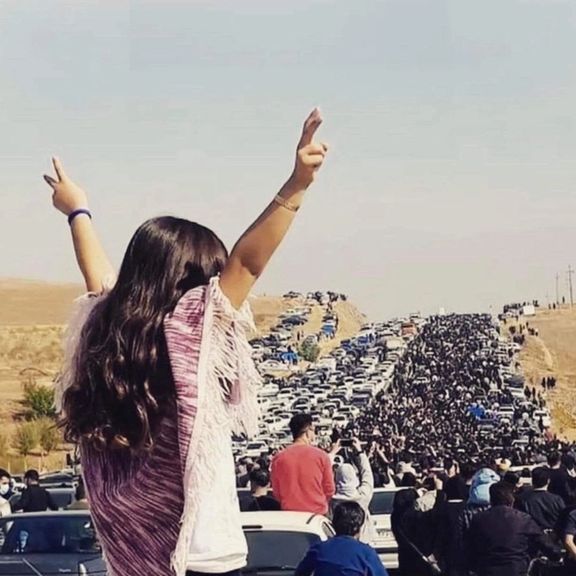
Bahador owns a small company and—in relative terms—is well off. He says his friends call him Glum after the character in the cartoon Gulliver’s Travels who famously said "it’s hopeless" and "it will never work."
“I stopped hoping after the 2022 protests were crushed,” Bahador explains, “but the ecstasy you see in Syria these days is contagious. It’s hard not to dream again.”
He qualifies his optimism immediately, of course, noting the possibility that radical Islamists could take over Syria. He says he cannot help his fear of disappointment, which compels him to hedge his best hopes.
Still, you can tell that he is, indeed, hopeful. And he’s not alone.
"Since the first videos from Syria’s prisons surfaced, I can’t stop imagining that moment when the prison doors open and people walk free.” This is Mehdi, a sales assistant in an insurance company, who unlike Bahador dares to speak his dreams.
“I picture myself in their place—that moment of unconditional freedom, shared with everyone else, leaving no one behind. I really hope we get to see this. But I can’t stop thinking about the thousands that have been killed or gone missing under this system.”
The events in Syria have rekindled hope, but also shocked many. While the brutality of Assad’s regime was no secret, the full extent of its machinery of repression, especially in Sednaya prison, is beyond imagination.
And it has raised uncomfortable questions about prisons in Iran.
Many fear that similar horrors might exist here in Tehran or other cities, hidden from public view. The Islamic Republic is quite brazen about its actions. It openly executes and convicts dissidents, often in breach of its own laws and processes.
Still, Syria’s revelations have troubled many activists that the brutality we see may only be part of the story.
Past nightmares aside, the Syrian experience is closely watched in Iran for hints of what the future may hold.
Debates rage on social media. Some warn that Syria’s revolution could end like Iran’s, leading to new forms of oppression. Others argue that the Syrians are miles ahead already, managing a peaceful transition, not rushing to execute former officials as Iran’s revolutionaries did in 1979.
Arash, a 29-year old crypto-trader, captures the irony of shifting narratives.
"For years we were warned that Iran could become another Syria. Now we should warn Syrians not to become another Iran. You don’t know whether to laugh or cry,” Arash says, shaking his head.
“Every time we protested, they’d flaunt so-called security: ’appreciate that you’re safe in this country,’ they said. And we all know how fragile that security is.”
He’s referring to the Israeli airstrikes and other operations inside Iran.
For now, fears of a war with Israel have eased among Iranians. The saber-rattling has somewhat faded with Assad’s fall. In its stead, we see gentle moves to build a functioning relationship with Syria’s new rulers.
The will of the Syrian people will be respected, Iran’s foreign ministry said in a statement. The irony!
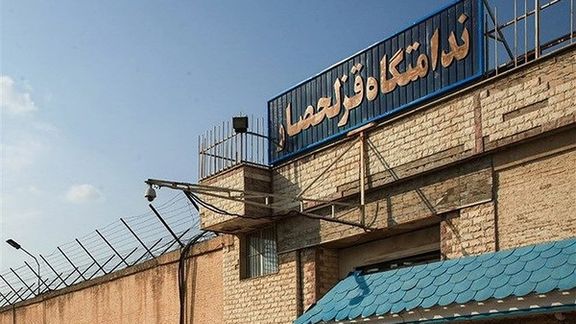
The United States designated Iran’s Ghezel Hesar Prison where hundreds of dissidents have been tortured and executed over the years.
“This prison was the site of gross violations of human rights, namely cruel, inhuman and degrading treatment and punishment of individuals in Iran who sought to exercise their right to freedom of expression,”US Secretary of State Antony Blinken said Thursday.
Earlier this year, the United States also sanctioned officials from Iran’s Prisons Organization who played a role in suppressing widespread protests that followed the death in custody of Mahsa Amini in September 2022.
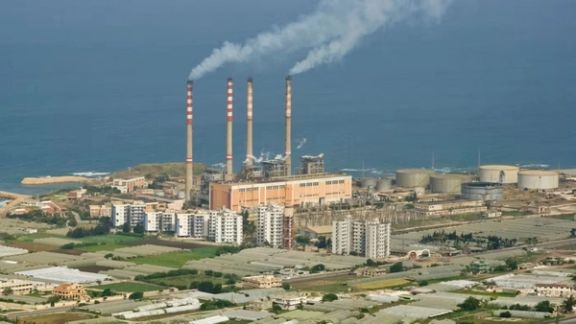
Syria’s largest oil refinery, Baniyas, halted operations after losing crude shipments from Iran, its primary supplier, the Financial Times reported, citing the refinery’s general manager.
Ibrahim Mousallem said the refinery produced its last petrol on Friday, following the fall of Iran-backed president Bashar al-Assad.
Syria’s new leadership expects sanctions to be lifted, enabling non-Iranian oil imports and equipment repairs, he added.
Earlier this month, in the wake of the collapse of Bashar al-Assad’s government in Syria, an Iranian tanker carrying oil to Syria reversed its course in the Red Sea apparently headed back toward the Persian Gulf.
According to data received by Iran International from Kepler, a leading provider of technology-led insights into energy and shipping markets, Iran had been sending between 60,000 and 70,000 barrels of oil to Syria daily.
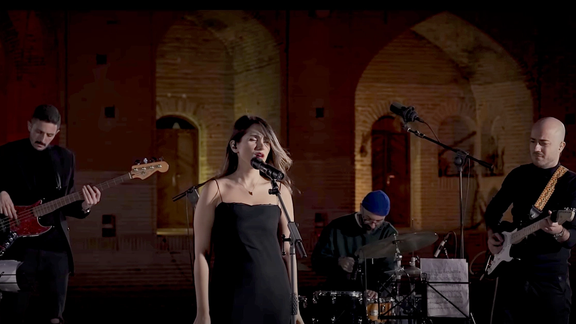
The now-viral unveiled performance by singer Parastoo Ahmadi which landed her briefly in jail was not just an artistic endeavor, but a groundbreaking act of defiance of Iran’s new oppressive Hijab law and the theocratic apparatus of control.
The significance of the moment is hard to overstate: a young woman raising her voice in song in an open space just as greying men in closed rooms pass laws demanding women and girls like her live as they dictate or face punishment.
Politicians and philosophers in eras past clearly warned of the affront to society such brute measures represent.
Under Iran’s new hijab law, women and even teenage girls face heavy fines, travel bans, and ultimately imprisonment if they do not follow a strict, arbitrary dress code. A government that enacts such a law seeks to exert total control over its citizens. This is not a law about clothing; it is a tool for suppression of human dignity.
The scope of this law is unprecedented. Minors as young as nine years old can face fines or detention in juvenile facilities for noncompliance. Social media influencers, businesses and even parents of offenders are held accountable, creating a web of fear and enforcement.
Surveillance measures extend to digital spaces, requiring platforms to remove noncompliant content or face punitive actions. The aim is to crush dissent and—perhaps more disturbingly— to correct any ideological deviation.
The law evokes George Orwell’s dystopian novel 1984, where surveillance extends not only to actions but also to thoughts and identities. The legislation seeks to enforce not just outward compliance but inward conformity, leaving no room for personal freedom or dissent.
Control is imposed by surveillance and punishment, targeting families, businesses, and entire communities. Women who choose to wear attire deemed inappropriate by the state risk being charged with “corruption on earth,” a charge that can carry the death penalty.
Businesses, from local shops to online platforms, are fined or shut down if they fail to report or enforce compliance among employees and customers.
This flies in the face of societal changes in Iran. Young Iranians appear to be convinced more than ever that individuals are the best judges of their own lives. Having grown up under the Islamic Republic, they seem to know by instinct what the English philosopher John Stuart Mill said in On Liberty: that their freedom to make personal decisions must be protected unless it directly harms others.
The Hijab law, however, does the opposite—it strips away personal choice under the guise of moral guardianship, violating a core tenet of human dignity.
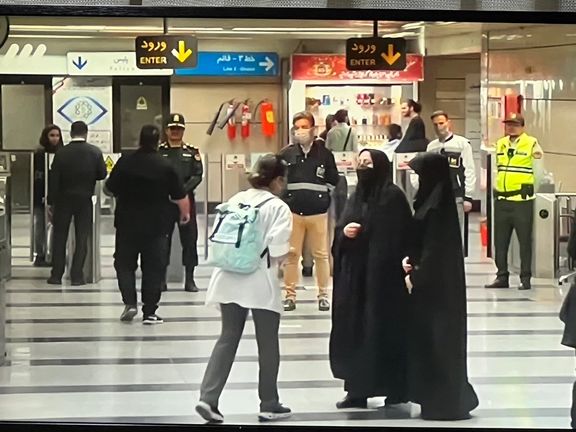
Laws are meant to protect freedoms, safeguard dignity and promote societal justice. A law that fails to uphold justice, as Henry David Thoreau would say, is not a law at all, but a tool of oppression. The Hijab law is that exactly, violating the dignity and autonomy of individuals.
The social consequences of this law are equally alarming. Hannah Arendt, in The Origins of Totalitarianism, warned of the dangers of laws designed to pit citizens against one another.
By mandating surveillance and encouraging individuals to report alleged violations within their communities, the Hijab law fosters mistrust and undermines social cohesion. This dynamic creates a society where neighbors become informants, and fear replaces solidarity.
Despite these oppressive measures, citizens are not powerless. Thoreau believed that resistance to unjust laws is a moral imperative.
Silence in the face of injustice, he argued, equates to complicity. The Hijab law, which flagrantly violates fundamental freedoms, calls for collective opposition. Defending the right to freedom of dress and personal choice is not merely an act of defiance but a stand for justice and human dignity.
In a society where women are jailed or executed for the simplest acts of autonomy, Parastoo’s voice resonated as a symbol of resistance, courage, and the irrepressible human spirit. Accompanied by male bandmates who stood in solidarity rather than domination, they showcased the power of collective defiance against tyranny.
This act of rebellion was a vivid reminder that even within the confines of authoritarianism, the spirit of freedom can shine, emboldening others to challenge unjust laws and envision a future where justice and dignity prevail.
The question for us Iranians and the global community is clear: will we stand idly by, or will we follow Parastoo—and many before her— to confront this affront to freedom and justice?